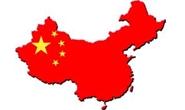Market Data

April 16, 2016
China Scraps Small-Firm Subsidy Program
Written by Sandy Williams
China has agreed to eliminate some export subsidies on products exported to the United States, said U.S. officials this week.
The subsidized products gave advantages to small firms in seven industries, including textiles and seafood, and were in violation of World Trade Organization rules. It is estimated that government subsidies for the program totaled about $1 billion over three years. To put that in perspective, the total value of Chinese exports to the U.S. just in 2015 was $482 billion.
The incentive program was scrapped a year after the U.S. challenged it at the World Trade Organization.
U.S. Trade Representative Mike Froman announced, “Following a dispute brought by the United States in the World Trade Organization (WTO), China has effectively terminated the challenged Program channeling export-contingent subsidies to Chinese enterprises across seven economic sectors, and dozens of sub-sectors, located in more than 179 industrial clusters. China has terminated the “Common Service Platform” subsidies to “Demonstration Base” enterprises and will remove export-contingent criteria from the “Demonstration Bases”.
“Today we have signed an agreement with China to eliminate export subsidies that the United States challenged because they are prohibited under WTO rules. This is a win for Americans employed in seven diverse sectors that run the gamut from agriculture to textiles to medical products, who will benefit from a more level playing field on which to compete.”
The WTO settlement ends a Chinese program which provided state aid to small exporters through a “common service platform.” Metal products are included in the subsidy elimination but because the focus is on specialty steel and aluminum products the action is not expected to relieve much pressure on the U.S. steel industry.
The move by Beijing was seen as an attempt to alleviate trade tensions that were highlighted last week by discussions in Washington, DC on China’s steel overcapacity and alleged dumping and subsidization.
A recent AIIS statement noted that despite recent cutbacks in China, the vice head of China’s Industry Ministry says the country will still have at least 400 million tons of excess steel capacity by 2020. The slow reduction of capacity is attributed to the prevalence of state-owned and subsidized enterprises.
“Today’s announcement that China will end its unfair export subsidies program sends a strong and important message that the U.S. will hold our trading partners accountable and enforce the trade agreements we have in place. If other countries want to trade with us, they must play by the rules or face the consequences,” said U.S. Rep. Rick Larsen (D-WA-2).







